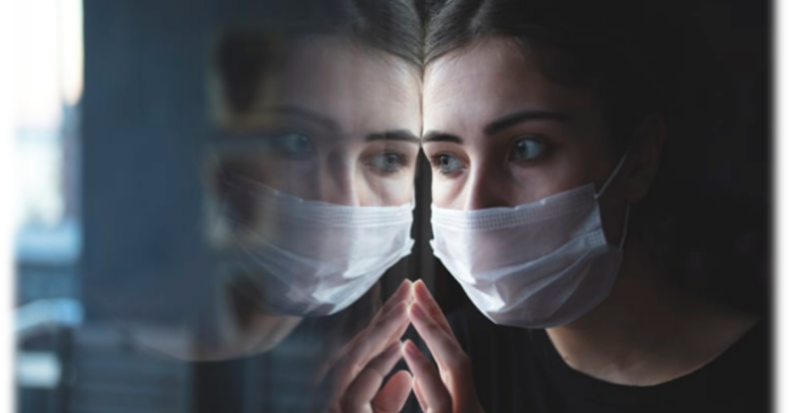During the pandemic, people were in quarantine and lockdown, making them lonely, sad, irritated, and stressed.
The number of suicide attempts increased rapidly, showcasing the alarming mental health resulting from limited social gatherings.
During the lockdown, we were all stuck up at our places, left alone on our couches to binge watch and attend online classes or office meetings which made us feel isolated and lonely, impacting our mental health.
World celebrates Mental Health Day on October 10 to create awareness about mental health issues and mobilise efforts to support mental health across the globe.
Coronavirus has affected our physical and mental health by inducing stress, anxiety, isolationism, and fear of missing out on things (FOMO).
However, the impact of the pandemic on mental wellbeing varies from person to person, and it depends on their social standings, past experiences and professional needs.
Pandemic impacting mental health
According to The Wire Staff, an estimated 139 million migrant workers were forced to walk hundreds of kilometres to return to their hometowns. Unemployment, starvation and police brutality impact negatively on their mental health.
Many cases of suicide attempts and deaths by suicide were reported throughout the country.
The state of mental health due to unemployment, self-isolation, victimisation and social exclusion is critical yet unexamined.
According to a study conducted by researchers at the University of Southern California, those working from home too experienced descending mental health due to less communication with colleagues.
Increased work expectations, decreased job satisfaction and an increase in the hours at the work station.
Children feel a mix of emotions as they are away from their friends and school, looking up to their parents and guardians for answers.
Experiencing anxiety, social isolation, and stress and showcasing it through crying, shouting, and behaving aggressively can have short-term and long-term effects on their mental health.
People spend more time on social media during the pandemic, checking updates on posts regularly and getting distracted from work or school.
People compare themselves with others, which escalates negative body image and bad feelings, thus impacting mental well-being.
Facebook, Twitter, Snapchat, YouTube, and Instagram exacerbate low self-esteem, frustration, and dissatisfaction, amplifying bad mental state.
How to get over it?
Out of suffering have emerged the strongest souls; the most massive characters are seared with scars. – Khalil Gibran.
Firstly, be honest with yourself. Talking about your feelings and insecurities in a safe and trusted environment boosts the morale.
Spending time with your loved ones, family and friends helps to get rid of the dark shadow. It is the best time to get back at the hobby you left behind.
Play your favourite party song and dance as energetically as you can. Take professional help to combat mental health issues.
It is a great opportunity to bring out the writer in you and write down all your emotions, goals, and positive thoughts in your diary. Talk about mental well being in general and the stigma about it.
Parents should talk to the children regarding the situation and make them feel safe. They should create a stress-less and anxiety-free environment at home as children tend to get affected by their energies.
They should encourage children to exercise and involve in physical activities. Children should the gravity of the situation hence parents should tell the kids the facts and figures but encourage them to be hopeful.
University of Pennsylvania study concluded that being more selective of your social media use can have affirmative results on your mental health.
Track your social media hours daily. Fix the time that you engage on social media platforms. Disable the notifications and turn off the internet connection while studying. Rejuvenate your relationships with offline friends.













